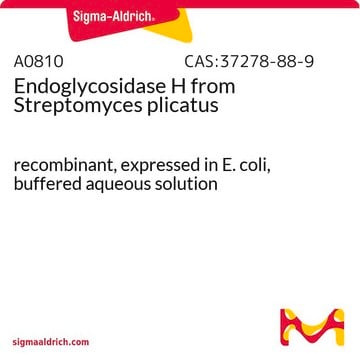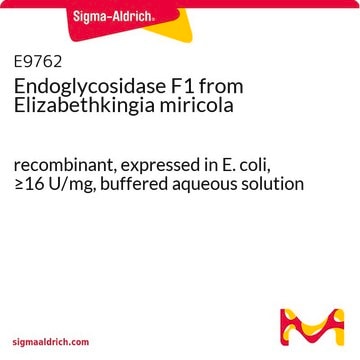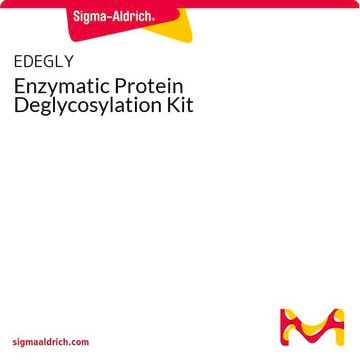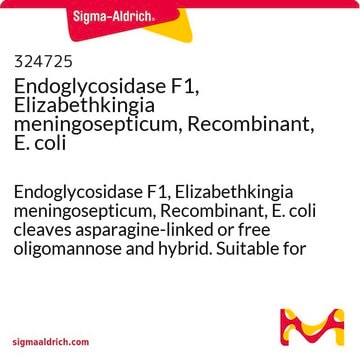E2264
Endoglycosidase F3 from Elizabethkingia miricola
recombinant, expressed in E. coli, 30 U/mg
Synonym(s):
Elizabethkingia miricola, Endo-β-N-acetylglucosaminidase F3, Endoglycosidase F3 from Elizabethkingia (Chryseobacterium/Flavobacterium) meningosepticum
About This Item
Recommended Products
recombinant
expressed in E. coli
Quality Level
conjugate
(N-linked)
form
solution
specific activity
30 U/mg
mol wt
32 kDa
shipped in
wet ice
storage temp.
2-8°C
Related Categories
Application
Biochem/physiol Actions
Packaging
Unit Definition
Physical form
Storage Class Code
10 - Combustible liquids
WGK
WGK 1
Flash Point(F)
Not applicable
Flash Point(C)
Not applicable
Personal Protective Equipment
Choose from one of the most recent versions:
Certificates of Analysis (COA)
Don't see the Right Version?
If you require a particular version, you can look up a specific certificate by the Lot or Batch number.
Already Own This Product?
Find documentation for the products that you have recently purchased in the Document Library.
Articles
Explore strategies for releasing N-linked glycans with PNGase F, PNGase A & native & sequential deglycosylation with endoglycosidases & exoglycosidases.
Explore strategies for releasing N-linked glycans with PNGase F, PNGase A & native & sequential deglycosylation with endoglycosidases & exoglycosidases.
Explore strategies for releasing N-linked glycans with PNGase F, PNGase A & native & sequential deglycosylation with endoglycosidases & exoglycosidases.
Explore strategies for releasing N-linked glycans with PNGase F, PNGase A & native & sequential deglycosylation with endoglycosidases & exoglycosidases.
Our team of scientists has experience in all areas of research including Life Science, Material Science, Chemical Synthesis, Chromatography, Analytical and many others.
Contact Technical Service








